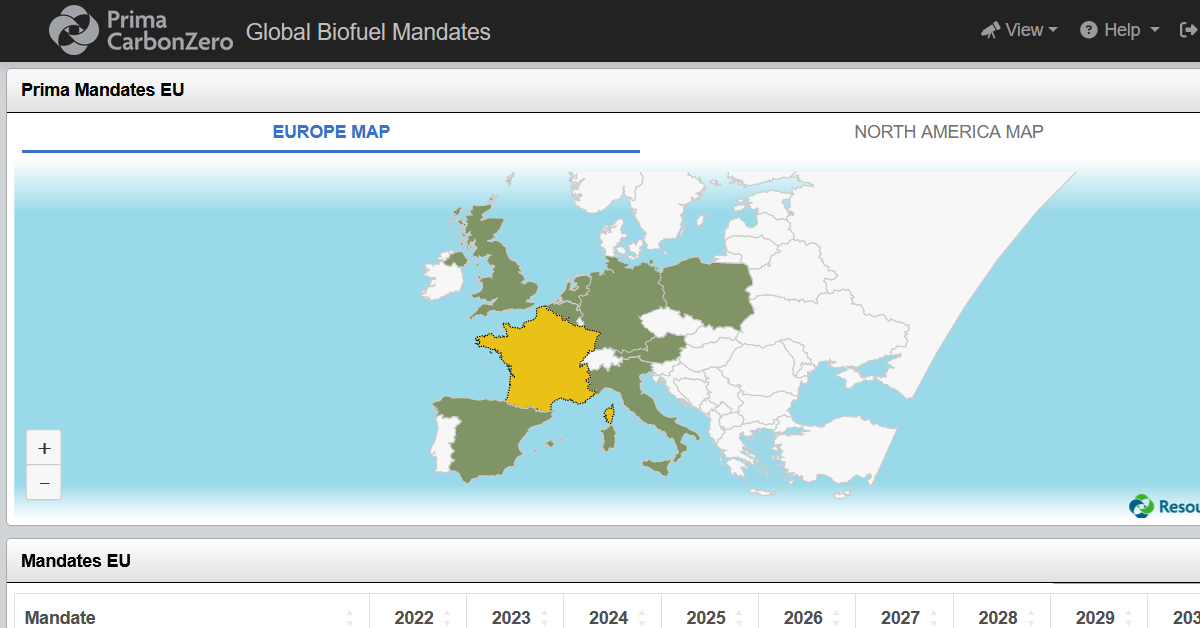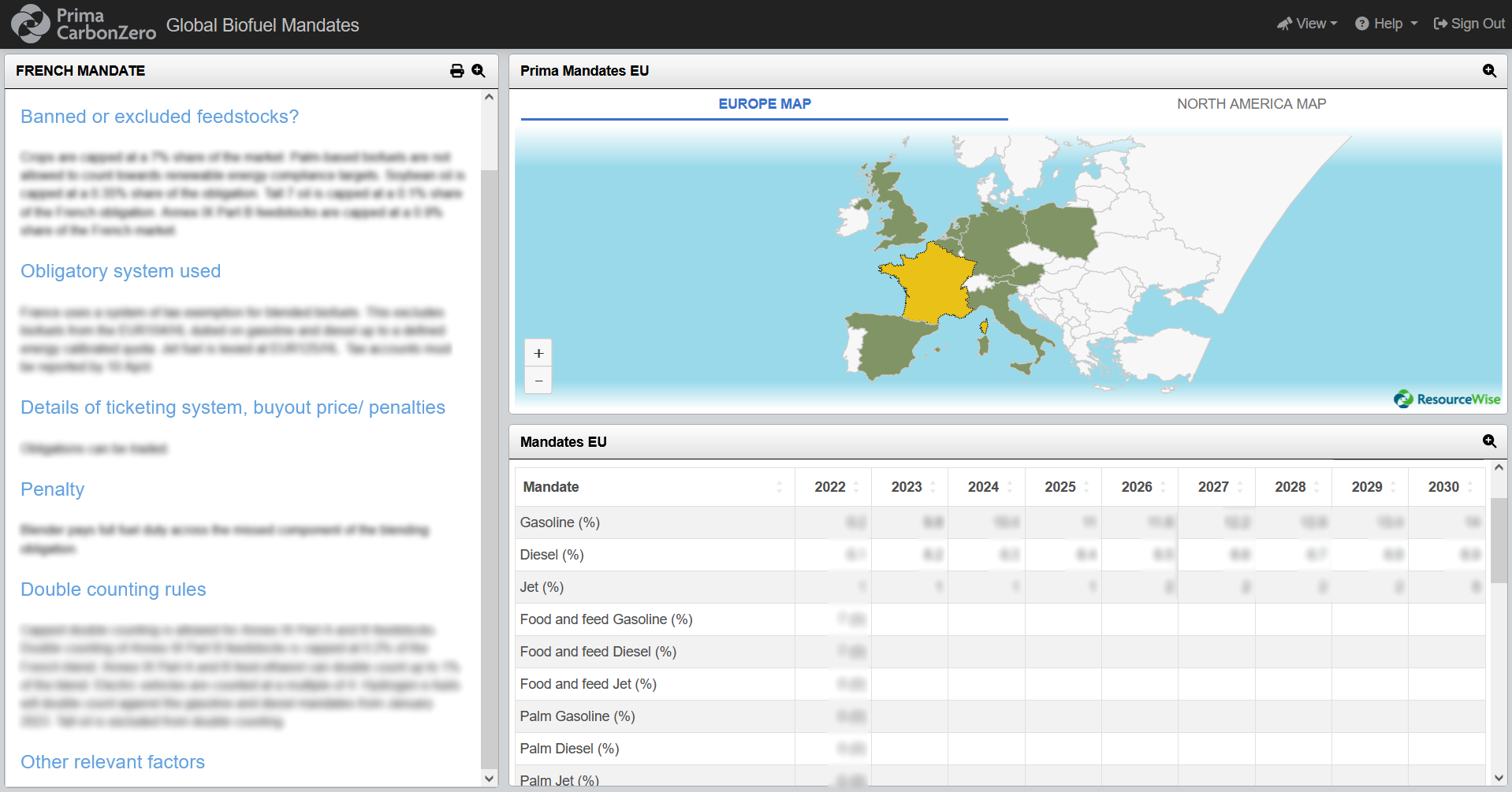
Global biofuel mandates are impacting commodities markets across the world. And these laws and regulations will likely shift even more toward renewables in the coming years.
Is your business prepared to meet these mandates and transition to low and zero carbon emissions? Below are some general guidelines on what this change will look like in the coming years.
European Union Biofuel Mandate
According to the European Commission on Energy, the EU is putting forth some major advancements in the transition to renewables.
The EU is pushing for a minimum 14% increase within transportation fuels by the goal year of 2030. This number includes at least a 3.5% share of second-generation biofuels.
The so-called “advanced biofuels” derive fuel feedstocks from substances other than food-based biomass — like oils. This includes plant-based biomass, animal wastes and other substances.
Transportation is one of the major contributors to carbon emissions. This push to increase biofuels use represents an immense shift and focus on developing and producing renewable biofuels in the EU.
EU Renewable Energy Directive and Indirect Land Use Change
One of the standards for renewable energy in the EU is known as the revised Renewable Energy Directive (EU) 2018/2001 (RED II). This provides guidance and specifics on the use of renewable energy sources within the European Union. The directive also requires additional sustainability considerations when converting to biofuels such as indirect land use change (ILUC).
ILUC refers to agricultural or farming land changing from feed and food production into biofuel production facilities. The shift into biofuels may lead to many of these farming and agricultural lands to be bought and converted to biofuel facilities. However, food demands covered by those former lands will still need to be met.
The displacement of these lands could lead to agricultural and farmlands seeking alternatives. These include areas like forests, which sequester significant amounts of carbon.
As a result, these changes could lead to the release of CO2, exceeding the carbon which would be conserved in the biofuel production facilities being built. This is why RED II places limitations on these lands and the fuels that come from them in the EU.
EU countries can continue to import and use these fuels, but they will not count toward achieving the above-mentioned renewable fuel requirements.
US Biofuels Increasing Required Amounts of Renewable Fuels
The US is also on the shortlist for making some major changes in the transition to renewables.
According to the EPA, their plan is to progressively raise the requirements for the total amount of renewable fuel mixed with traditional fossil fuels. This proposal will require all refiners to slowly move their renewable fuel ratio up over the next 3 years:
- 2023: 20.82 Billion Gallons
- 2024: 21.87 Billion Gallons
- 2025: 22.68 Billion Gallons
The 2023 change brings the mandate up 3.4% from the 2022 mandate, 13.7% from 2023 to 2024 and 12.2% up from 2024 to 2025. In sum, these reflect major changes in the utilization of renewable fuels in just a few short years.
The biofuel blending requirements mandate is definitely still a work in progress. What this means is the mandates may change again depending on which laws pass and which don’t.
This is why it is absolutely critical that you have the most current information on mandates. Understanding how these mandates work is vital for determining both where you operate and how imports/exports may work on the fuels your organization uses.
Prima CarbonZero: Convenient Data on Global Biofuel Mandates
Ensuring that your organization properly adheres to global biofuel mandates is critical. And with emerging regulations and compliance, you need to stay on top of the latest developments.
Prima Markets, a ResourceWise company, simplifies knowing and understanding these mandates with its online analytics platform: Prima CarbonZero.
The platform provides an interactive map where you can quickly track all current mandates across the EU and North America. You can find all the critical information you need in one convenient location.

You can also take advantage of a wealth of data insights and expert commentary on the increasingly important sector of low-carbon fuels and feedstocks.
Prima CarbonZero helps organizations track current and historical pricing during their transition into renewables and a lower carbon footprint. Our industry experts provide decades of knowledge and experience to guide you on your path forward.
Are you interested in learning how to navigate your own path toward decarbonization? Download our eBook, Mapping a Plan for Decarbonization: The Problem of Starting Now.





